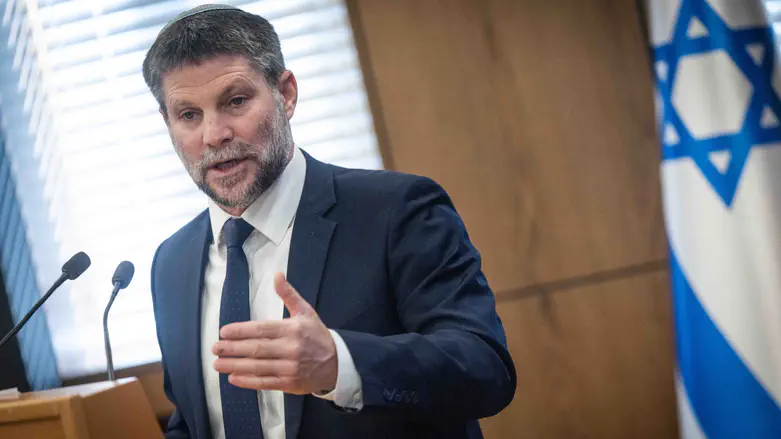Finance Minister Bezalel Smotrich called today (Tuesday) for a reduction in the defense budget and warned of long-term economic consequences if the defense establishment’s demands are met in full.
He said this at a press conference held at the Finance Ministry, where the updated growth forecasts for 2025-2026 were presented.
Smotrich argued that the defense budget should be constrained to allow the Israeli economy to recover and grow, and said the defense establishment requests funds without examining spending efficiency. “In the coming weeks the IDF spokesman will try to claim that more money is needed. I ask you, economic reporters – be critical. The October 7th massacre did not happen because of a budget shortfall.”
According to senior Finance Ministry officials, security forces used reserve salary funding “inefficiently”, which caused the waste of billions of shekels. The data presented put the cost of the war to date at about NIS 250 billion.
The Finance Ministry’s chief economist, Shmuel Avramson, announced a downward revision to Israel’s growth forecast for 2025, from 3.1% to 2.8%. Conversely, the forecast for 2026 was revised upward to 5.2%, and he said, “Any shekel unnecessarily allocated to the defense budget is an additional shekel in taxes on Israeli citizens.”
During the press conference the Finance Minister was also asked about the alleged corruption case in the labor union. In his response he avoided addressing the case directly, but said, “This is not a healthy event. The union built the state. For years I have been trying to advance reforms. The union does not protect workers’ rights; it cares about other things. The labor laws that developed here do not match a modern market that wants to grow and develop – there is a heavy burden on the economy.”
Director-General of the Defense Ministry Amir Baram responded to the briefing on the defense budget, “We regret that the Finance Minister again cynically exploits the reserve system, to which we all owe a debt, only to create a smokescreen and divert the discussion from core issues: the urgent security need to invest again in readiness and to accelerate the building of the IDF and other forces, in the face of emerging threats, primarily Iran’s accelerated rehabilitation attempts.”

